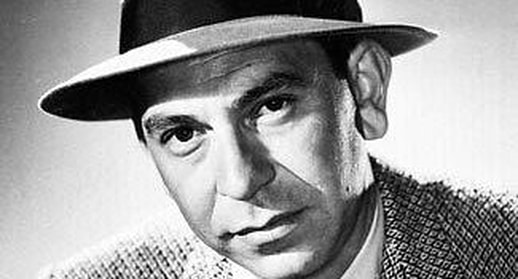WHAT JOE FRIDAY COULD TEACH KELLYANNE CONWAY – AND THE REST OF US – ABOUT FACTS. Detective Joe Friday from "Dragnet" knew his facts. Photo Credit: CBS When I was growing up in the 70s, Detective Joe Friday’s refrain on “Dragnet” felt reassuring. “Just the facts…” There was a steadfastness and wholeheartedness in his words, and it gave me some kind of peace to know that he would be discerning when collecting information from his witnesses. It was the facts, ma’am, that would enable him to solve the mystery of the moment.
I felt a strong twinge of nostalgia and longing for Joe Friday when Kellyanne Conway, counselor to President Trump, recently introduced the world to the notion of “alternative facts.” This poor disguise for “opinions” is exactly what Joe was looking out for when talking to his witnesses. He was collecting data, measurements, information about the actual events of the incident, and he knew well when the story veered off onto opinions punctuated by imaginative adjectives, colorful hyperbole, and a personal point of view. Facts create structure. They are measurable and repeatable. They gave Joe Friday a solid place from which to begin his investigations. They offer all of us a common foundation from which we can strive to foster trust in our relationships. They enable us to coordinate effectively and make decisions that are grounded in a more universal reality. It is, of course, also true that we may find common ground in our personal opinions, but that agreement is likely to be familial, tribal, or organizational. It is certainly not unanimous in the greatest sense of the word. When opinions, judgments, or points of view are confused with facts, life is bound to get messy. This is when we can no longer see clearly where universal truth ends and personal truth begins. Opinions are subjective and variable. They are not sturdy or steadfast. They shift and bend. They make a wobbly foundation for trust, a keystone in all of our relationships – with partners, friends, colleagues, clients or the general public. Imagine if Joe Friday were to have led an investigation based on the colorful stories some of his witnesses provided. By failing to build a case based on the facts, he might have wasted department time, money and resources, deceived his colleagues, and broken trust with the community he pledged to “Protect and Serve.” Behavior like that would have quickly and completely eroded Joe’s seemingly-indelible integrity, a characteristic that was central to the role, and a virtue that he beamed to all of us "Dragnet" viewers week after week. Our points of view, stories and opinions are important. They help us make sense of the world and find our place in it. But they are not facts. Concretizing an individual point of view as if it were a measurable statistic or universal fact only leads to confusion and crisis. This is a minor risk for the hero of a mid-20th century crime drama, but it is of vital importance in our daily lives and relationships, and even more when the person or group behind the opinion wields the power of the White House. Building a capacity to distinguish between facts and opinions is a core tenet of Authentic Communications, a methodology that invites teams and individuals to listen with empathy, cultivate trust, and communicate from the heart in order to move in life with integrity, power and connection. Join Jennifer for an Authentic Communications workshop in Palma de Mallorca, Spain, on Sunday, 12 February 2017 at 10 a.m. Register: www.zunray.com
0 Comments
|
MusingsHere you'll find some of my thoughts about communication, contemplation, yoga, life and various other topics. Thanks for giving them a read. Archives
February 2022
Categories
All
|
 RSS Feed
RSS Feed